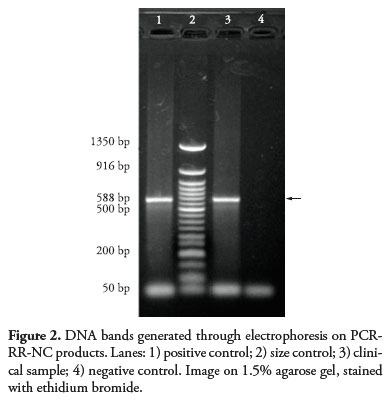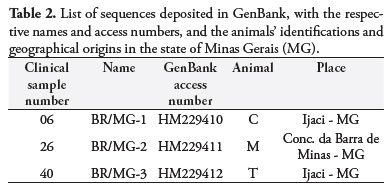Neosporosis is an important cause of abortion in cattle and information on their genetics and host parasite relationships are desirable. Neospora caninum samples obtained from 24 bovine fetuses from Minas Gerais, were genetically analyzed in part of the rDNA region, coding for rRNAs. Previously, brain, heart, liver, skeletal muscle, lung, kidney, spleen, thymus, lymph nodes, ovary or testis, uterus and skin of the ear were analyzed by conventional histopathology and immunohistochemistry. Of these, eight had lesions compatible in the brain and heart and two also in skeletal muscle and liver. Three brains showed antigen identification in immunohistochemistry. Brain and heart tissues were subjected to DNA extraction for PCR, whose product of 588 bp of ITS-1 region was sequenced in three samples. We obtained 96% similarity with dozens of sequences N. caninum deposited in GenBank. The phylogenetic tree showed great conservation among isolates of N. caninum in this study and those deposited in GenBank, while well-defined and specific branches were generated against other Apicomplexa. PCR for this region is useful as a diagnosis, with good analytical specificity, but the ITS-1 region is not suitable for genetic differentiation intra species because the sequences obtained were identical to the others analyzed.
Bovine; diagnosis; phylogeny; Neospora caninum; PCR







